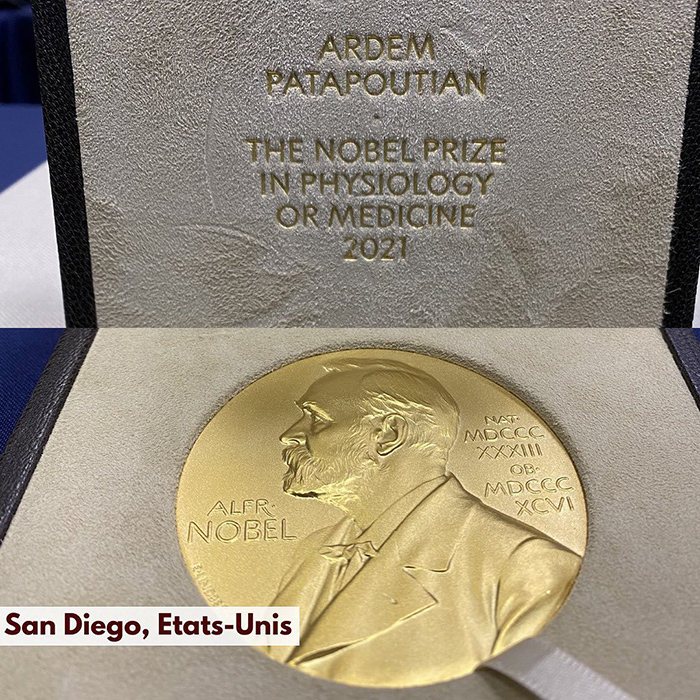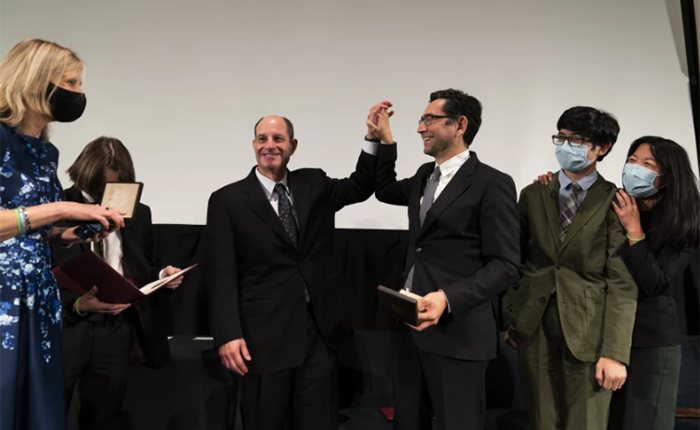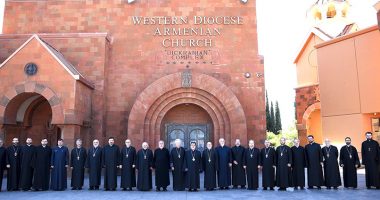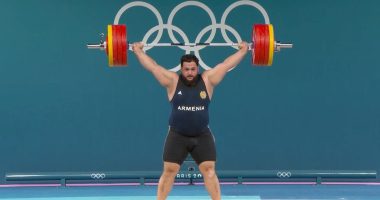SAN DIEGO — Armenian-American scientist Ardem Patapoutian was awarded the Nobel Prize on Wednesday for helping discover how humans sense temperature and touch, breakthroughs he largely made at La Jolla’s elite Scripps Research, The San Diego Union-Tribute reports.
Karin Olofsdotter, the Swedish ambassador to the United States, conferred an 18-karat gold medal for physiology or medicine on Patapoutian and one on his co-winner, David Julius of UC San Francisco, under circumstances that also were highly unusual.
All Nobel medals and diplomas — except for the ones given in peace — have historically been given in Stockholm, Sweden. But the Nobel Foundation decided — as it did a year ago — to honor the laureates in their home countries due to COVID-19 issues.
The four Western U.S. laureates received their prizes during a brief ceremony at the National Academies’ home near UC Irvine. They include Patapoutian and Julius, as well as David Card of UC Berkeley and Guido Imbens of Stanford, who won a Nobel in economics.


Wednesday’s ceremonies represented the end of a wild two-month period for Patapoutian, 54, an Armenian-American who fled civil war in his native Lebanon in 1986 to emigrate to the U.S., where he began his career as a biochemist and later joined Scripps, where he still works.
He had his phone turned off in the hours before dawn on Oct. 4 when the Nobel Committee was trying to reach him to say that he’d won. The committee was able to reach his 94-year-old father, who lives in the Los Angeles area, who then contacted Patapoutian, telling him to call Sweden.
Patapoutian rolled over in bed at his home in Del Mar and told his wife, Nancy Hong, “Happy birthday … And I think I’ve won the Nobel Prize.” He later baked her a birthday cake.
Since then Patapoutian, an energetic, garrulous man, has been flooded with speaking requests from around the world — something that happens to all people who win the world’s highest science prize.
He and Julius discovered cell receptors that make it possible for people to sense heat, cold, pain, touch and sound. The work is important in drug development, especially at places like Scripps Research, which works closely with pharmaceutical companies to turn its discoveries into new therapeutics.
Patapoutian told the Union-Tribune in October, “I came here with very little money and hardly spoke the language. I worked in a lab and just fell in love with doing research. Ever since then, this has been my life and joy.”
He was equally joyful Wednesday a couple of hours before receiving his medal, telling the Union-Tribune, “We couldn’t go to Stockholm. But this is fantastic. There are four laureates from the West Coast and we’re able to get together to have discussions about science. It is wonderful.”










